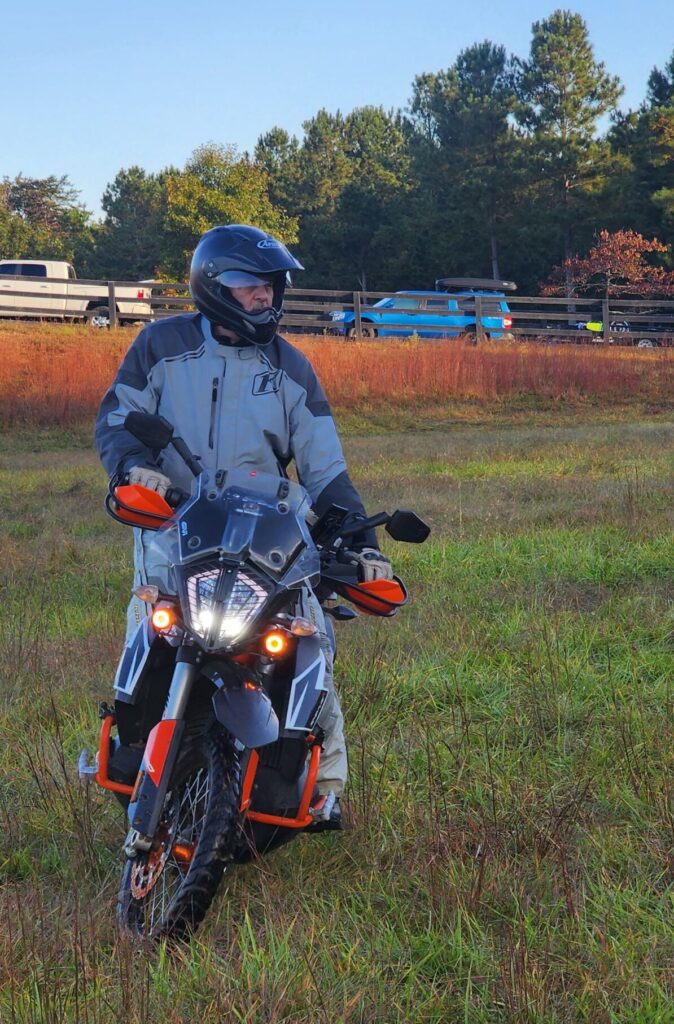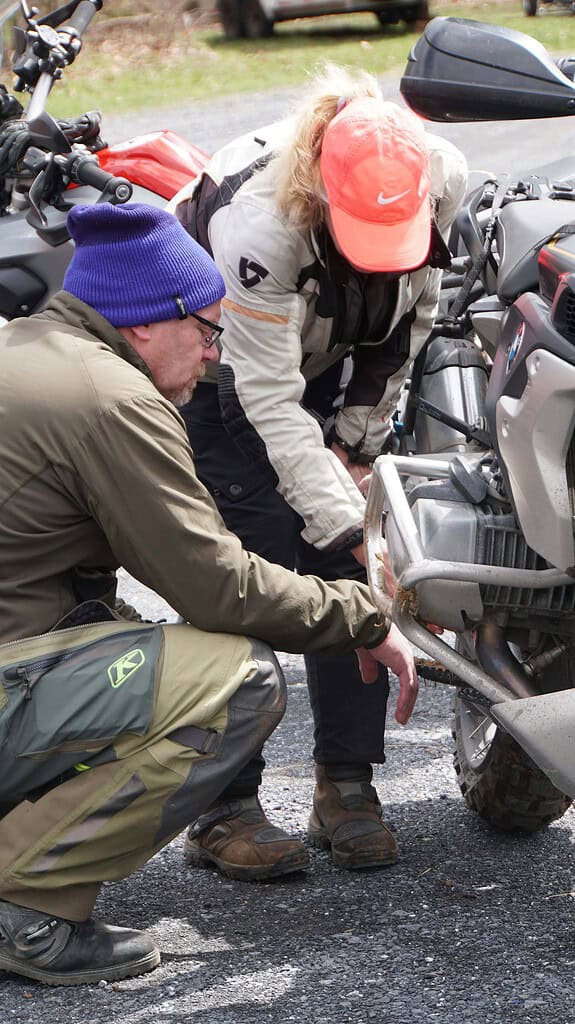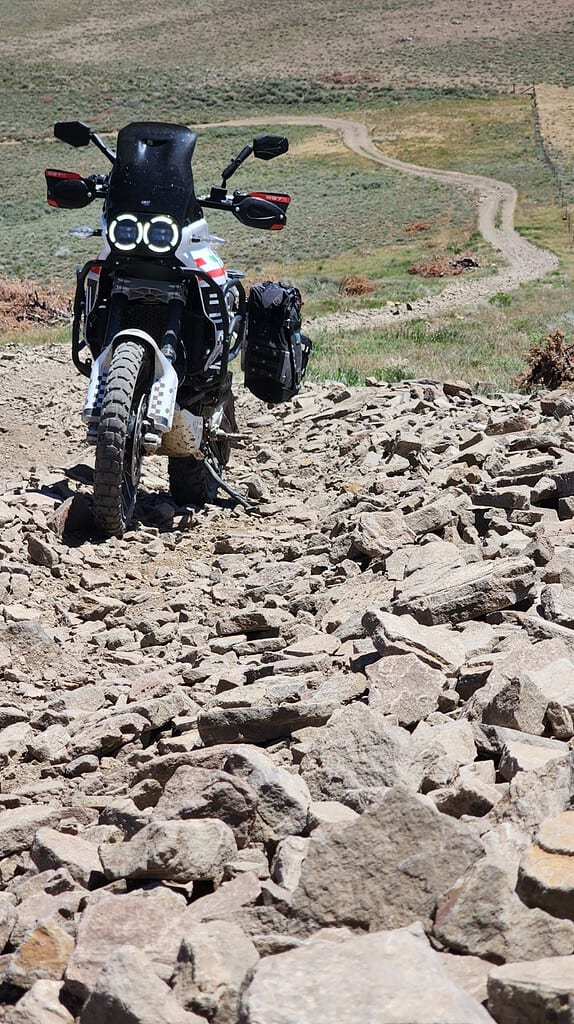
Why invest in ADV Motorcycle Training?
ADV riding classes
dual sport motorcycle training near me
ADV riding is game of intellect and riding skills. Bret’s method of teaching riders to ride “nature’s way” takes you through a process of discovering and understanding cause and effect rather than the traditional formulaic or step-by-step instruction. Formulas are fine when you are new, but it does not arm you with the ability to adapt to the requirements of the real world.
WHAT ARE YOU LOOKING FOR?
ARE YOU WANTING TO DEVELOP YOUR SKILLS?
ADV Training Camp is for riders who are looking to the gain the best skills and knowledge possible for riding large adventure motorcycles off-pavement and offroad. The ADV camp offers a comprehensive understanding of your motorcycle and how you can interact with it and the environment.
DO YOU PREFER LEARNING WHILE TRAVELING ALONG A ROUTE?
ADV Training Tour is for riders experienced on maintained forest service roads. You need to bring the confidence to ride on gravel roads and a craving for adventure. We will train you for the more difficult terrain as it changes, providing you with the skills and knowledge needed to successfully conquer each new challenge.
ARE YOU A VERY CONFIDENT BEGINNER OR LOOKING FOR ADVANCED SKILLS?
Challenge Training is designed so you can work through increasingly challenging terrain at an accelerated pace. This course uses a fluid curriculum that practices in more challenging environments than the ADV Camp and to take advantage of real-life scenarios as they are encountered.
GEORGIA ADVENTURE TRAINING
YOUNG HARRIS, GEORGIA:
Training occurs at a remote location originally designed for motocross riders. This will give you access to unique trails through the woods as well as some rugged hill climbs and a unique opportunity to learn how to separate rider from bike in a whoops section.
This location is camping-only, but hotels are available a short distance away.
FEATURES:
Terrain varies from high traction dirt to wet, sticky clay.
VIRGINIA ADVENTURE TRAINING
GREENVILLE, VIRGINIA:
This is our premiere location, where you can stay and play at the same location – an old 135 acre English horse farm in the rolling hills of Greenville, a small town nestled in the Appalachians.
You will have the opportunity to enjoy our spaghetti trail – an off-camber looping trail system that will challenge your balance and slow-speed maneuvering skills. Several intimidating hills will challenge the mind of even the most accomplished ADV rider.
This location includes breakfast, a welcome and graduation dinner as well as lodging available on-site (additional charge).
TERRAIN:
Dirt doubletrack trails, some singletrack options, slick off-camber grass, and hills that vary in steepness and difficulty.
IDAHO - CALDWELL / NAMPA
Nothing can simulate reality the same as reality itself. This is what makes this location a one-of-kind ADV Challenge Training event. This is the only location that utilizes a combination of an ADV Camp style training with on-trail training. Each day you will travel and train in a new location. This is the most daring training format we have ever offered.
The location of training changes every day depending on the skill of the group, but will be within riding distance of hotels near Nampa, Idaho.
TERRAIN:
Mostly desert, sand, rocks, sand, steep loose hills, sand, long days and possibly forest… oh, and sand.
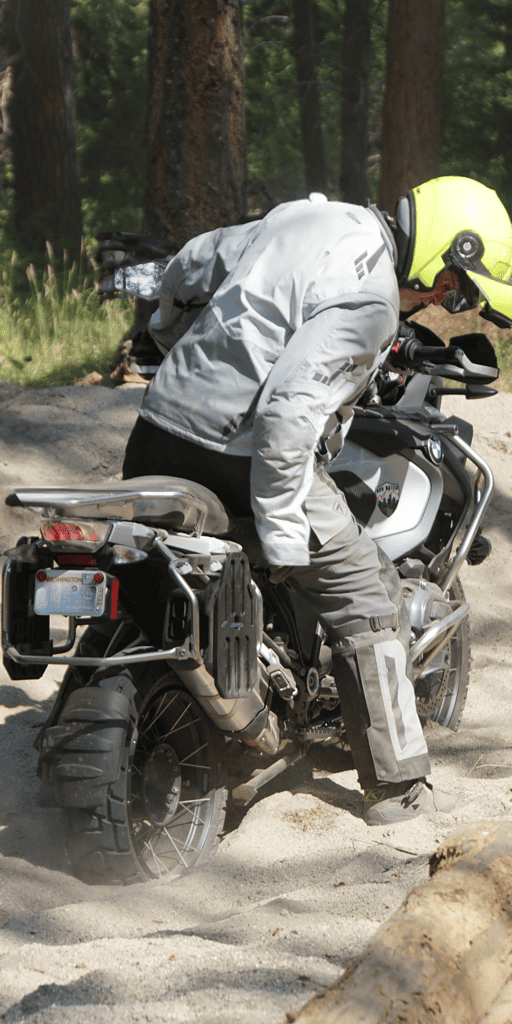
WASHINGTON - LEAVENWORTH
Familiar to everyone who has gone to the Touratech Rally, this location utilizes the same obstacle course used during the rally. You will get ample opportunities to learn how to cross embedded logs, deep sand pits, as well as extensive on-grass practice for braking and sliding.
This location offers a hotel (additional charge), restaurant, grocery store, and hardware store directly across from the training area for the ultimate convenience.
TERRAIN:
Custom-made obstacles to challenge all levels of rider, grass and dirt for slide turns, some moderate hills.
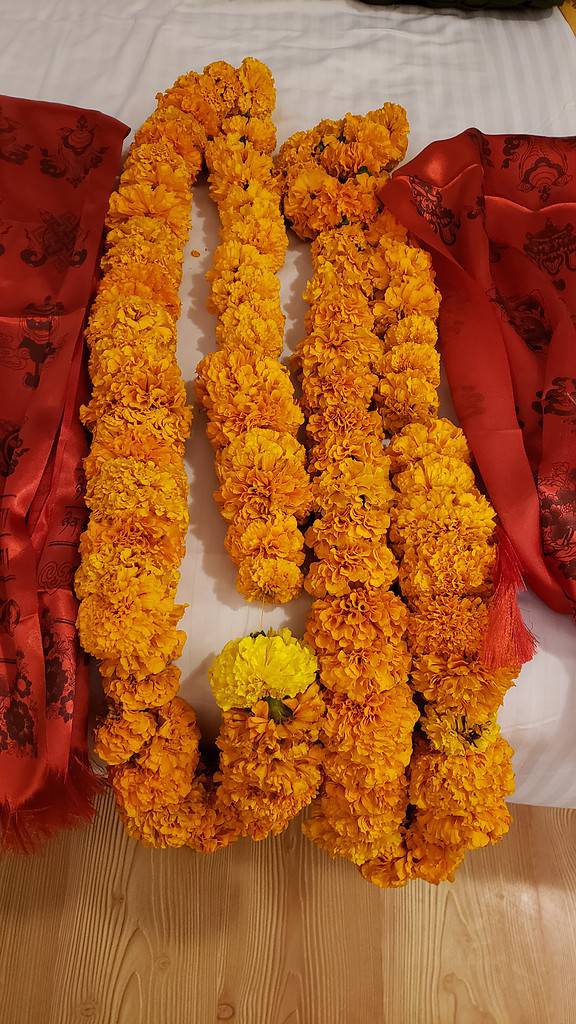
UPPER MUSTANG - NEPAL
This expedition goes into the secluded upper Mustang Region, nestled within the rain shadow of the highest mountain range in the world – the Himalaya. Only recently opened to foreigners with a Nepali guide, and protected by a restrictive access permit, this isolated region is the best-preserved remnant of Tibet.
Access to this region is not cheap, not easy and at times… not comfortable. However, the scenery at over 12000′, the undisturbed culture and the feeling of total isolation are completely worth the effort and sacrifice. Visit Lo Manthang, the forbidden city and the last piece of authentic Tibetan life.
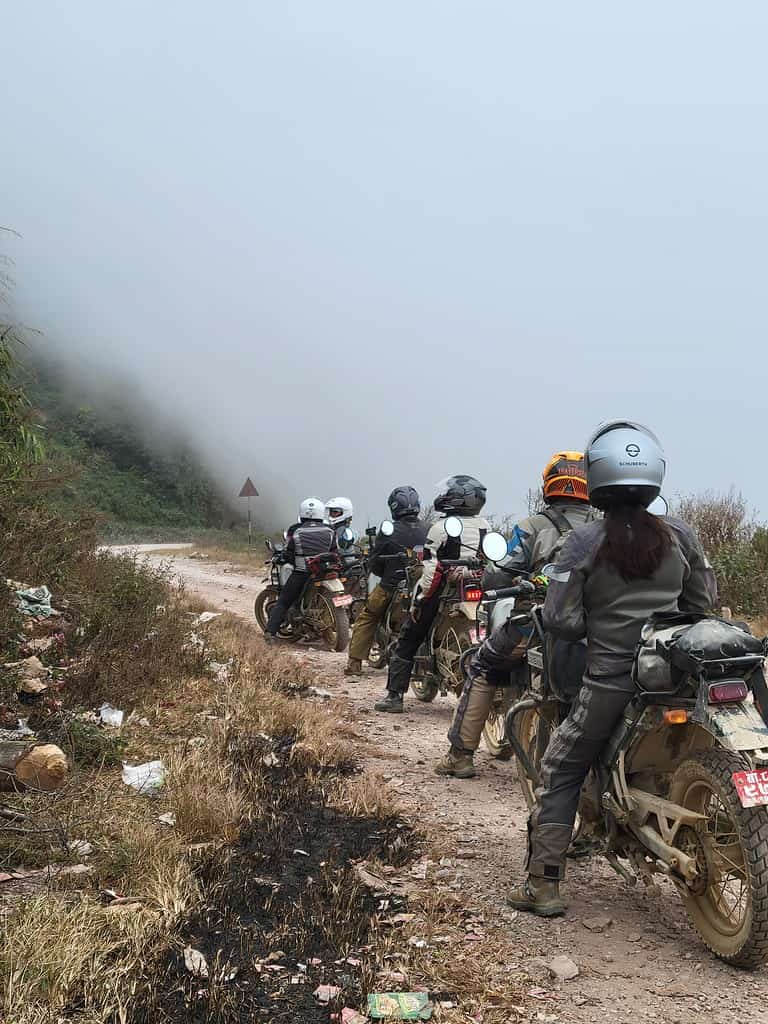
EVEREST BASE CAMP - TIBET
Starting in the exotic city of Kathmandu you will ride north to China’s Tibet region to see awe-inspiring places such as the Potala Palace in Lhasa. You will also experience numerous monasteries dotted on the landscape.
This trip will travel along the extremely well-maintained roads where you will be able to relax and enjoy the experience to its fullest. For many the highlight will be the to ride to Everest Base Camp sitting at 17,598 ft (5364m).
Your Instructors
Bret, Paul and Greg coach by performing root cause analysis for each rider to identify and fix riding errors. Every rider is affected by physical abilities, limitations, past experience, talent, cognitive ability and so forth. This means providing blanket coaching can lead to devastating consequences. When you train with our team, you can be confident that you will be given advice specific to your exact needs.
Bret Tkacs
Bret has a unique skill of watching and listening what motorcycle tells him before looking at the rider. This process of coaching has earned him the name “motorcycle whisperer” from other instructors. If you think you can cheat with your vision by using a tinted shield think again, your bike will tattle on you.
Bret is systematic and very specific with correcting problems. He believes the secret to mastering riding is understanding the physics of riding and the psychology of the rider. His passion for teaching is insatiable and you will likely find him talking about motorcycles and riding from breakfast to dinner. like a hound dog on the scent, good luck changing the conversation away from riding.
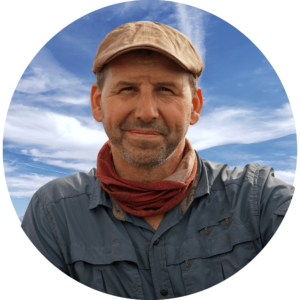
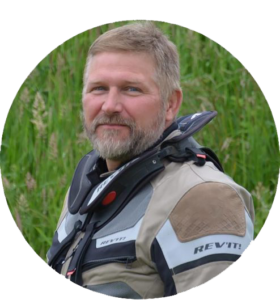
Paul Solomonson
Paul is an accomplished and highly skilled motorcyclist with an in-depth understanding of how the rider and motorcyclist work together. Paul can come across rough at times but you can almost always find him with the slowest riders making sure everyone is ok both mentally and physically. He will encourage you but never push you when you need to rest.
A valuable instructor, Paul has the unique ability to explain complex scenarios in a simple, relatable, and often memorable way, leading to much greater understanding and retention. Be careful though, once Paul starts a story (and he has MANY) he can’t stop, so you may just have to ride away. It’s ok… he will finish even if you leave.
Greg DiBernardo
Greg has a background on the track (road racing), in the dirt and as an adventure rider with international riding experience. His overwhelming enthusiasm and excellent coaching makes him an unforgettable instructor. Once you spend time with Greg you will feel like you’ve made a friend for life.
If you hang around long enough you may see Bret or Paul poke Greg with a with a topic that draws on Greg’s passion. When this happens it’s best to just kick back with Bret and Paul, put on a smile, and watch the show.
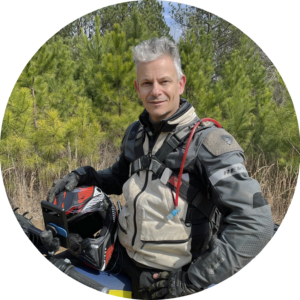
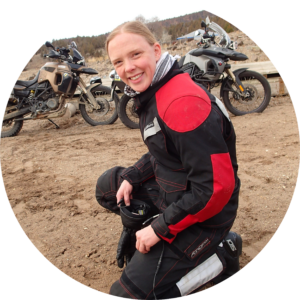
Christina Tkacs
Christina is extremely understanding of rider challenges as she self-admittedly had a very rough start riding off-road. She brings a smile to every class and is quick to laugh. She enjoys bringing the joy of adventure riding to people who have been struggling with the frustration of crashing or getting hurt.
Christina is our “Q” and makes sure everything runs smooth on the back side with registrations, questions and the website. She seldom talks about her personal experiences riding in countries around the globe but if you can get her talk her experiences will keep you entertained and enlightened.
